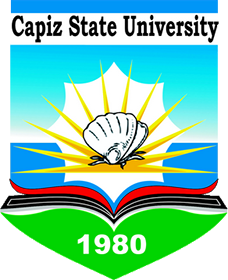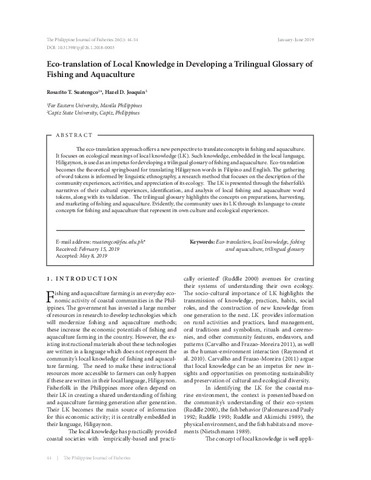Eco-translation of local knowledge in developing a trilingual glossary of fishing and aquaculture
Abstract
The eco-translation approach offers a new perspective to translate concepts in fishing and aquaculture. It focuses on ecological meanings of local knowledge (LK). Such knowledge, embedded in the local language, Hiligaynon, is used as an impetus for developing a trilingual glossary of fishing and aquaculture. Eco-translation becomes the theoretical springboard for translating Hiligaynon words in Filipino and English. The gathering of word tokens is informed by linguistic ethnography, a research method that focuses on the description of the community experiences, activities, and appreciation of its ecology. The LK is presented through the fisherfolk’s narratives of their cultural experiences, identification, and analysis of local fishing and aquaculture word tokens, along with its validation. The trilingual glossary highlights the concepts on preparations, harvesting,
and marketing of fishing and aquaculture. Evidently, the community uses its LK through its language to create concepts for fishing and aquaculture that represent its own culture and ecological experiences.
Subject
Recommended Citation
Joaquin, H. D., & Suatengco, R. T. (2019). Eco-translation of local knowledge in developing a trilingual glossary of fishing and aquaculture.Type
ArticleISSN
0048377X; 26722836Collections
The following license files are associated with this item:



